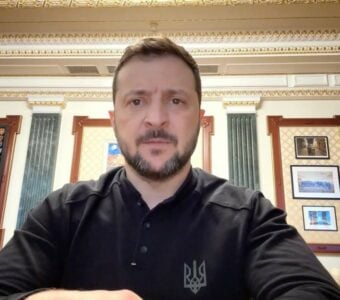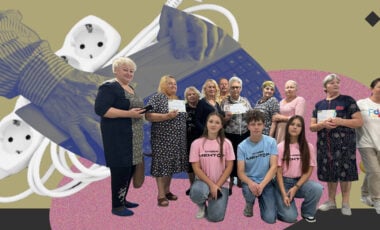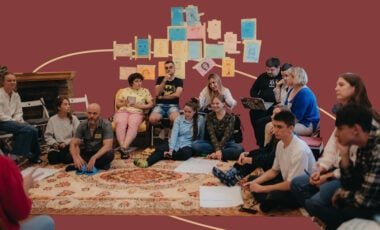Solutions from Ukraine: Hostomel school and Mykolaiv dispensary use hybrid solar systems due to Russian attacks on infrastructure
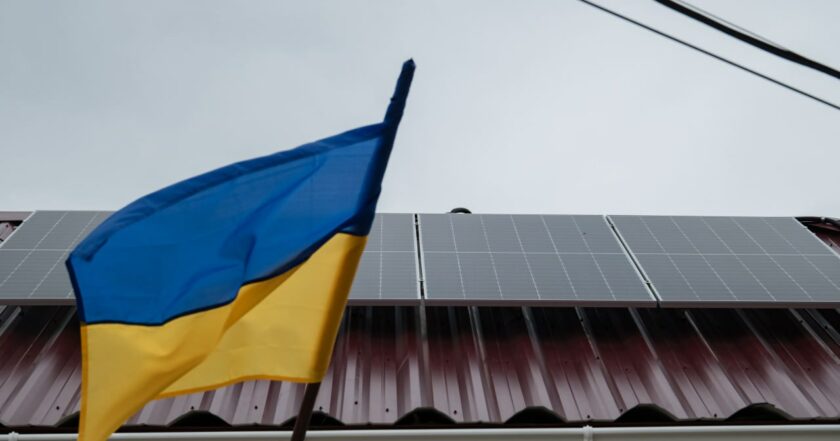
Hybrid solar systems were set up at Hostomel school and Mykolaiv dispensary. In light of recent Russian attacks on Ukraine's energy infrastructure, these installations will enable Ukrainians to continue learning and receiving medical treatment even in the event of power outages without relying on generators.
Greenpeace reported this.
What is the problem?
Prime Minister Denys Shmyhal called the Russian shelling on March 22, 2024, one of the most significant attacks on energy facilities since the beginning of a full-scale war.
The Russian army has always prioritized targeting Ukraine's energy supply during the war. In the autumn of 2022 and spring of 2023, they relentlessly bombarded Ukrainian thermal power plants, heat and power plants, and distribution substations to cut off electricity, heat, water, and communications for the Ukrainian people. As reported by the Kyiv School of Economics, as of June 2023, the direct cost of damage to the Ukrainian energy infrastructure is estimated to be $8.8 billion.
Due to the blackout, Ukrainians were deprived of the opportunity to work and study normally. For the government, businesses, schools, and kindergartens to function somehow, international partners of Ukraine purchased and delivered hundreds of thousands of generators. According to People's Deputy Yaroslav Zhelezniak, 669,400 generators were imported into Ukraine in 2022 alone, and it is obvious that their number increased in the following months.
Considering the increase in missile attacks on energy in March 2024 and the unpredictability of their consequences, Greenpeace aims to support the energy sustainability of Ukrainians most effectively and ecologically.
What is the solution?
The installation of hybrid solar power plants at a school in Hostomel, Kyiv region, and a dispensary in Mykolaiv is expected to lessen the reliance on diesel generators, resulting in a reduced negative impact on the health of students and patients. Additionally, this system significantly lowers the costs for communal services, and within the next few months, the school and dispensary will be able to operate using 100% solar electricity. The Environmental Fund Greenpeace Germany funded and implemented the project with the Ukrainian company Solar Service.
The core of the hybrid solar system consists of 5 kW solar panels and 10 kW storage batteries, mitigating reliance on the power grid, which is susceptible to attacks. In case solar power is insufficient for the needs of the school and the dispensary, generators can be utilized as a last resort.
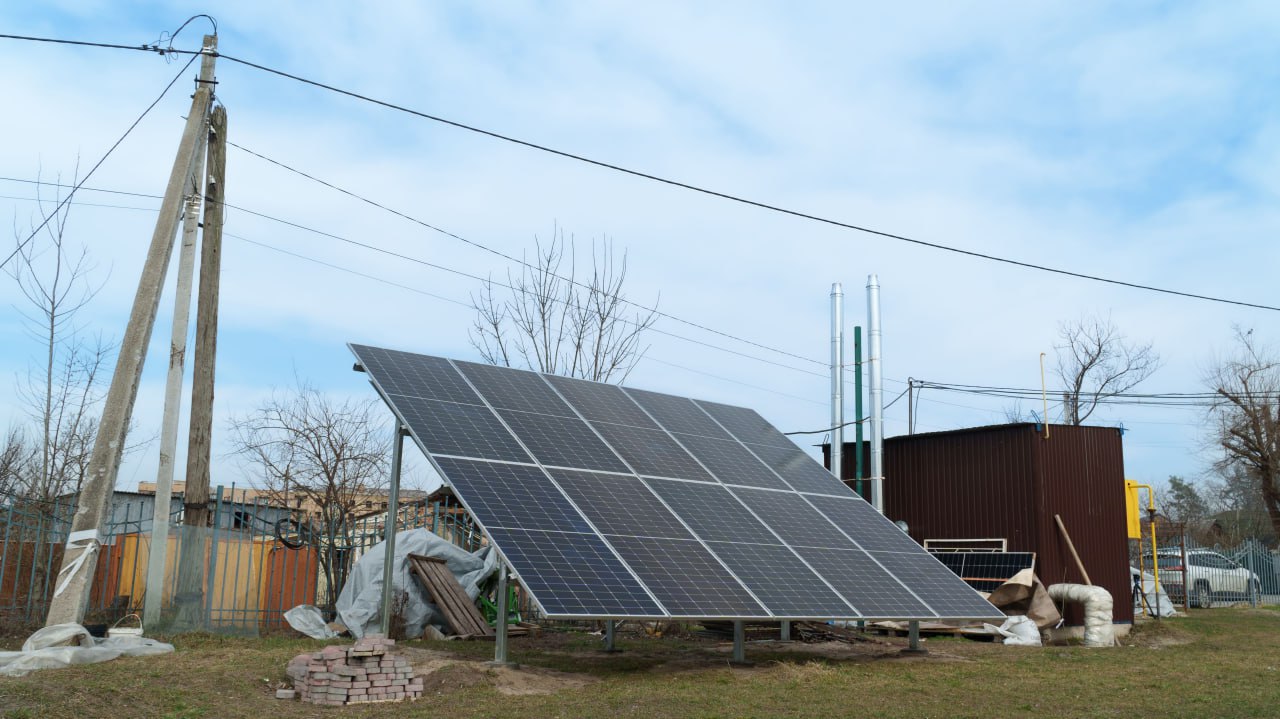
After the project proves successful, hybrid solar power plants can be installed in more schools, kindergartens, and hospitals in Ukraine, especially those near the contact line and with unstable power supplies. This project is a new example of the enormous potential and advantages of solar energy for Ukraine.
How does it work in Hostomel?
One of these stations was installed at the Mostyshcha branch of Lyceum No. 1 in Hostomel, Kyiv region. In March 2022, the Russians bombed the educational institution. Only the inner walls and batteries remained from it, and there were 15 holes around it.
After the de-occupation of the Kyiv region, the workers set the goal of rebuilding their native school and, with the help of benefactors, managed to restore the building and education and build a new, modern shelter.
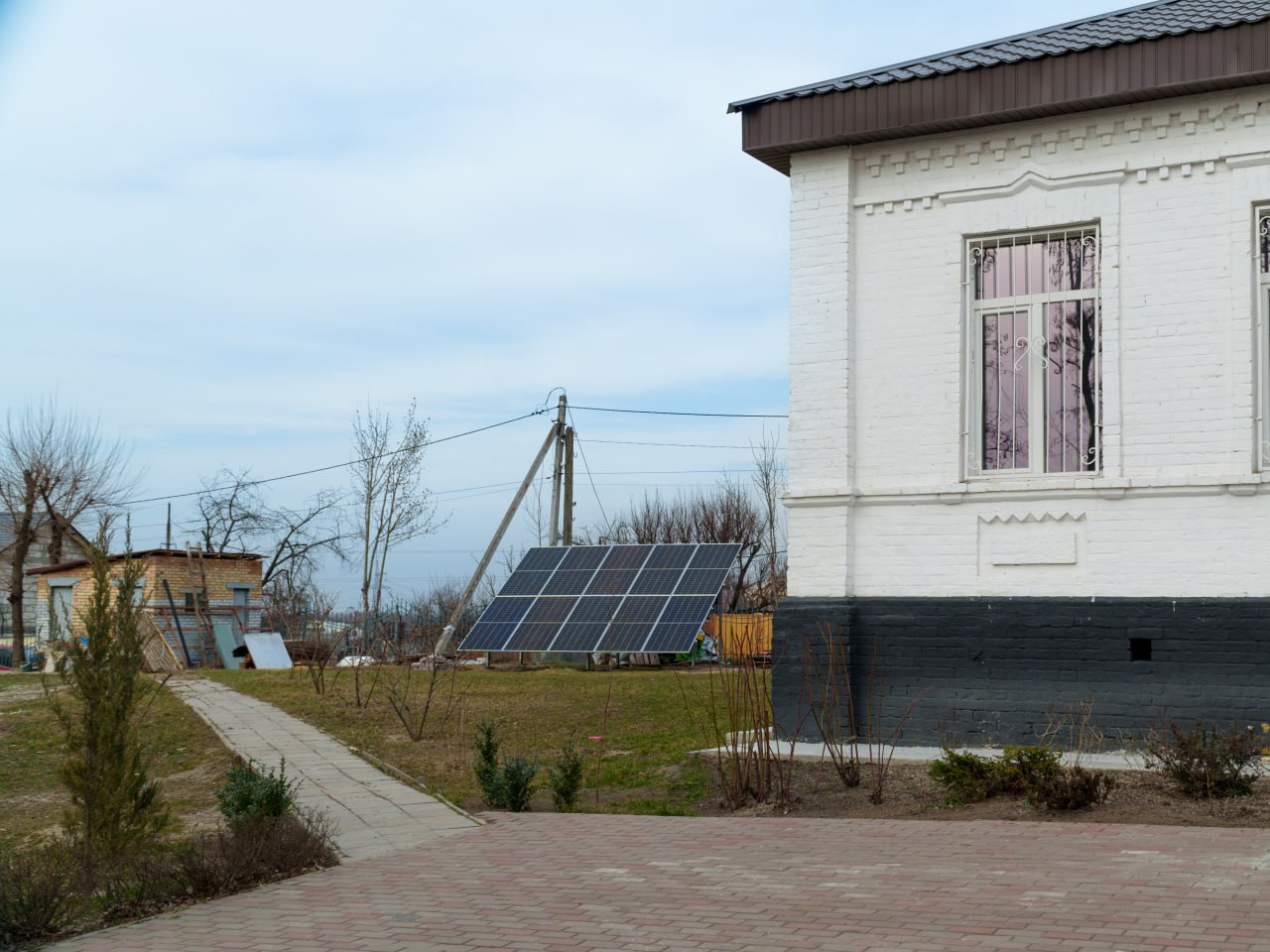
The school administration had already planned on implementing solar panels even before the major war broke out. Still, it became an even more pressing matter after reconstruction and frequent power outages. The faculty and students vividly recall the challenges of studying without proper communication, the ability to charge devices, and the means of contacting their families. Plus, using diesel generators, while helpful during blackouts, caused significant noise pollution, environmental harm, and increased fuel expenses. Thankfully, the team and students are relieved that the sun will ensure uninterrupted learning in the face of ongoing threats to Ukrainian electricity.
"We have already felt the effect of this solar system. The day it was installed, it was very sunny, and we used a single kilowatt from the general grid. The other 13.5 kilowatts 'came' from the solar panels. Currently, on more cloudy days, the solar panels cover up to 30% of our electricity," says Nataliia Roh, head of the Mostyshcha branch of Lyceum No. 1 of the Hostomel settlement council. "Our batteries store the energy generated by solar panels, so in case of a power outage, we can continue to use all of our computers, printers, tablets, and scanners without any interruption. We are thrilled with this capability, and everyone has praised how awesome it is always to have electricity now!"
How does it work in Mykolaiv?
Another hybrid solar power plant is installed 25 km from Mykolaiv in the Mala Korenykha district. During the full-scale war, the local dispensary, which belongs to the "Center for Primary Health Care No. 6", did not stop working for a single day. Medical aid was provided here, and humanitarian assistance was brought from the city.
The dispensary experienced frequent and challenging power outages during the fall and winter of 2022–2023. As a medical facility, it was crucial to maintain refrigeration for essential medicines and vaccines. This meant that during blackouts, the medical staff had to transport these vital supplies to other dispensaries multiple times daily to prevent spoilage. However, considering the long distance to Mykolaiv, this was a strenuous task.
During these challenging months, the dispensary's management and medical staff came to appreciate the importance of green energy. As a result, they happily accepted Greenpeace's proposal to install a hybrid solar power plant at the Mala Korenykha dispensary.
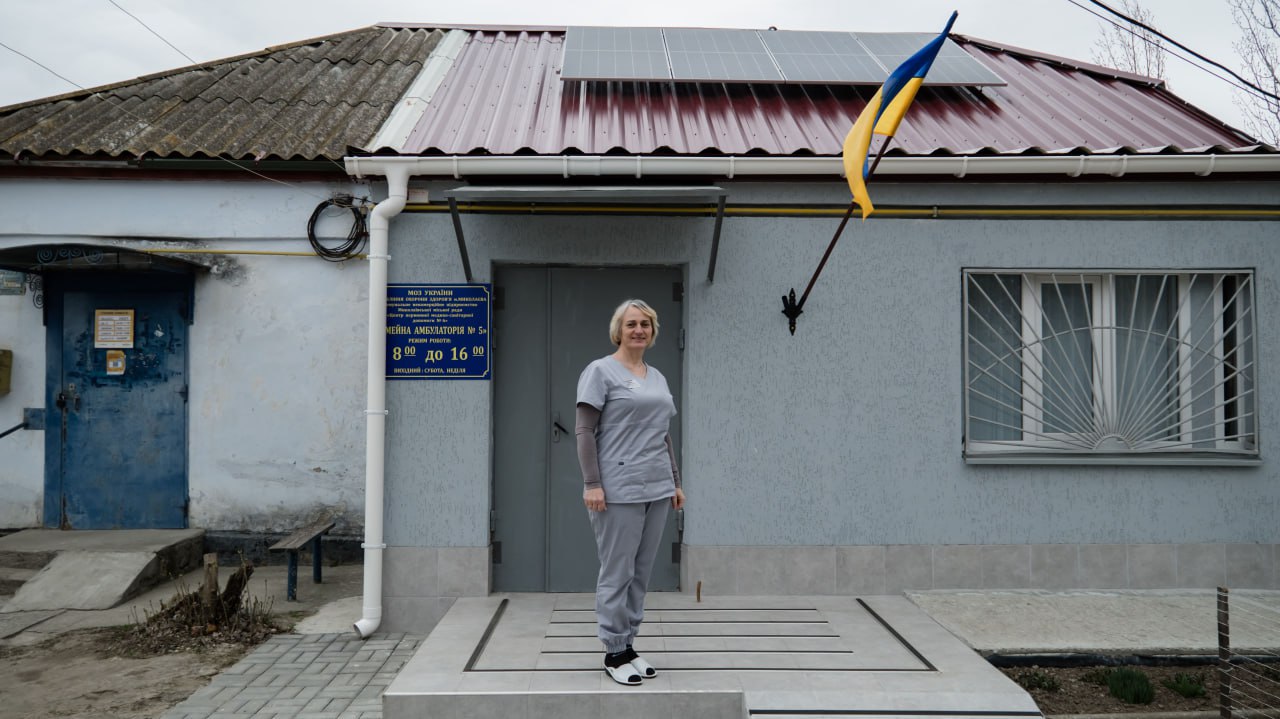
"We have become energy independent. Currently, due to Russian shelling in Ukraine, there may be blackouts and emergency shutdowns, and the presence of solar panels makes life much easier for outpatient clinics," Lilia Netochii, a nurse at the family outpatient clinic No. 5 of the Primary Health Care Center No. 6 " in Mykolaiv says. "We work both with the elderly and children; we vaccinate them, and now our medicines and vaccines are safe. The residents were pleasantly surprised because, during the war, no one expected that they could take care of the population in this way. People are pleased that we now have a solar system."
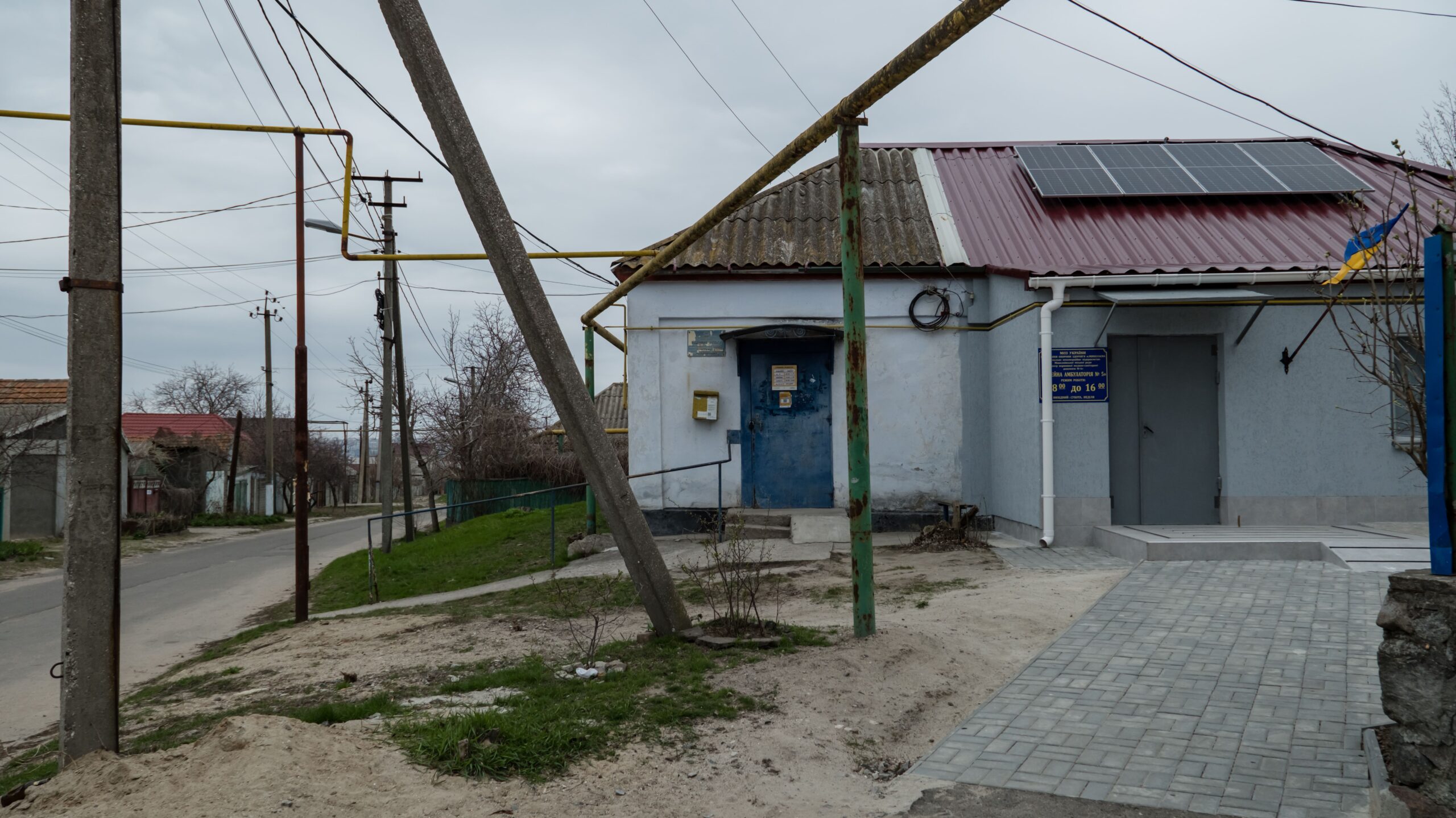
For reference:
It should be noted that Vitaliy Klytschko announced that autonomous solar power plants will be installed in Kyiv to provide an uninterrupted power supply to the city's hospitals.
It was also reported that in the Kyiv region, in the village of Havrylivka of the Bucha community, a solar power plant started operating, which powers a pumping station.




